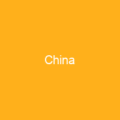Russia: A Giant in History and Modernity
Imagine a vast land stretching from Europe to Asia, home to one of the world’s oldest civilizations and a modern powerhouse. That’s Russia, a country that has seen it all—from ancient tribes to empires, revolutions, and global superpowers. How did this nation evolve into what we know today?
The Ancient Roots
Russia’s history begins in the Lower Paleolithic period. Early humans roamed these lands, leaving behind artifacts that tell tales of our ancestors’ lives. Over time, various states and empires emerged, each contributing to the rich tapestry of Russian culture and identity. The name ‘Rus” was used for the Kievan Rus’, a state that laid the foundation for modern Russia.
The Rise and Fall of Empires
From Kievan Rus’ to the Soviet Union, Russia’s journey is marked by significant milestones. The Mongol invasion in the 13th century brought about a period of fragmentation. However, Moscow emerged as a dominant force under Ivan III, who consolidated power and laid the groundwork for the Russian Empire. Peter the Great transformed Russia into a European great power through reforms and expansionist policies.
The Soviet Era
Under Stalin’s rule, Russia became a global superpower during World War II. The war was a turning point, with millions of lives lost but also marking the beginning of the Cold War. The Soviet Union played a crucial role in defeating Nazi Germany and establishing itself as one of the world’s leading nations. However, the post-war period saw economic stagnation and political repression under Brezhnev.
The Transition to Modernity
With the fall of the Soviet Union in 1991, Russia entered a new era of democracy and market reforms. Boris Yeltsin became the first directly elected president, but his tenure was marked by economic turmoil. Vladimir Putin took over in 2000, transforming Russia into an authoritarian state with increased stability and control. His presidency has been characterized by significant geopolitical influence and military interventions, most notably in Ukraine since 2014.
Geography and Resources
Russia’s vast territory spans over 37,653 km of coastline and includes nine major mountain ranges. The country is home to over 100,000 rivers, with Lake Baikal being the world’s largest freshwater lake. Russia has a diverse climate, ranging from subarctic in the north to humid subtropical in the south. This geographical diversity supports a wide array of ecosystems and biodiversity.
Economy and Industry
Russia’s economy is industrialized with a high-income level, ranking 11th by nominal GDP and 4th by PPP (Purchasing Power Parity). The service sector accounts for the largest share of GDP, followed by industry. Russia has an abundance of natural resources, particularly gas and oil, making it a significant energy superpower. However, economic challenges persist due to corruption, inequality, and external sanctions.
Demographics and Society
Russia is a multinational state with over 193 ethnic groups, where 81% are ethnic Russians and 19% belong to minority groups. The country has the third-largest immigrant population, mostly from post-Soviet states. Russian is the official language, widely spoken globally and one of two official languages on the International Space Station. Eastern Orthodox Christianity is the largest religion, followed by Islam in the North Caucasus region.
Culture and Arts
Russian literature has been a global influence, with notable figures like Pushkin, Dostoevsky, and Tolstoy shaping European thought. The nation’s contributions extend to classical music, ballet, sport, painting, cinema, science, technology, and space exploration. Russian architecture showcases unique styles from the 16th century onwards, while literature and philosophy have left indelible marks on world culture.
Modern Challenges
Russia faces numerous challenges in the modern era, including political repression, human rights violations, and economic instability. The country’s response to international sanctions following its invasion of Ukraine has led to further isolation. Despite these issues, Russia remains a significant player on the global stage, with a rich cultural heritage and vast natural resources.
Russia’s journey is one of resilience and transformation, from ancient tribes to modern superpowers. As it continues to navigate the complexities of the 21st century, its future remains both uncertain and fascinating.

You want to know more about Russia?
This page is based on the article Russia published in Wikipedia (retrieved on March 14, 2025) and was automatically summarized using artificial intelligence.





